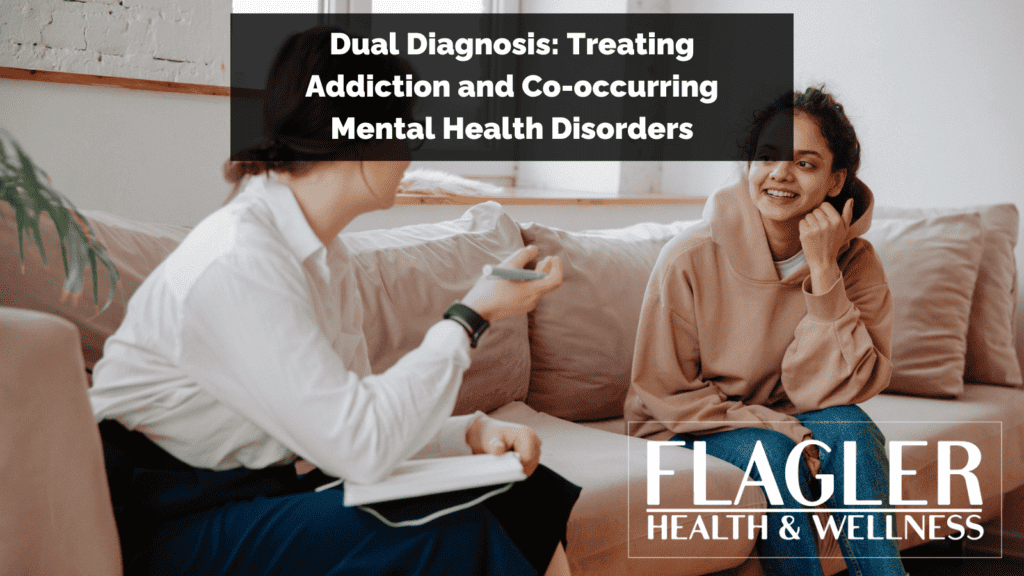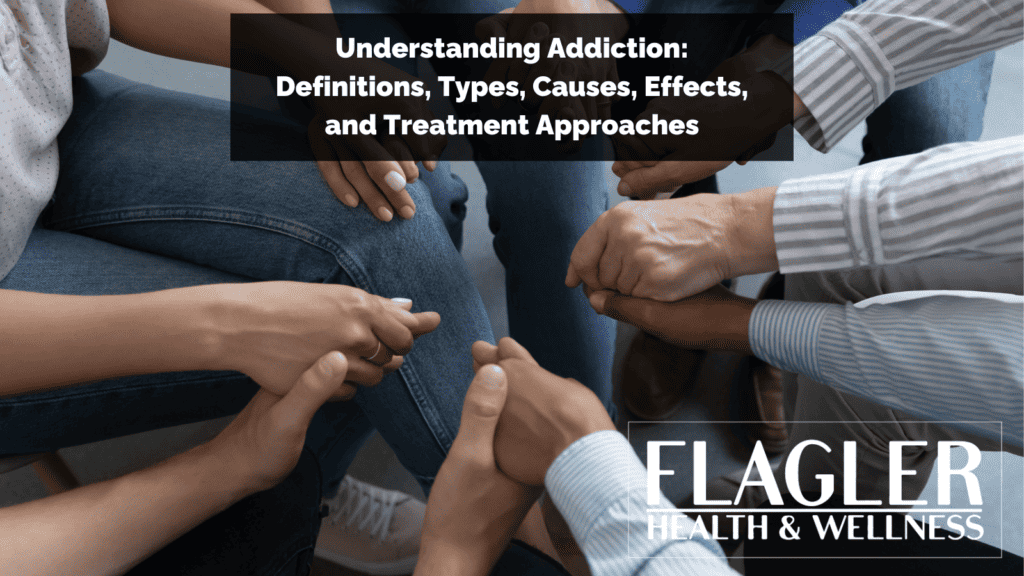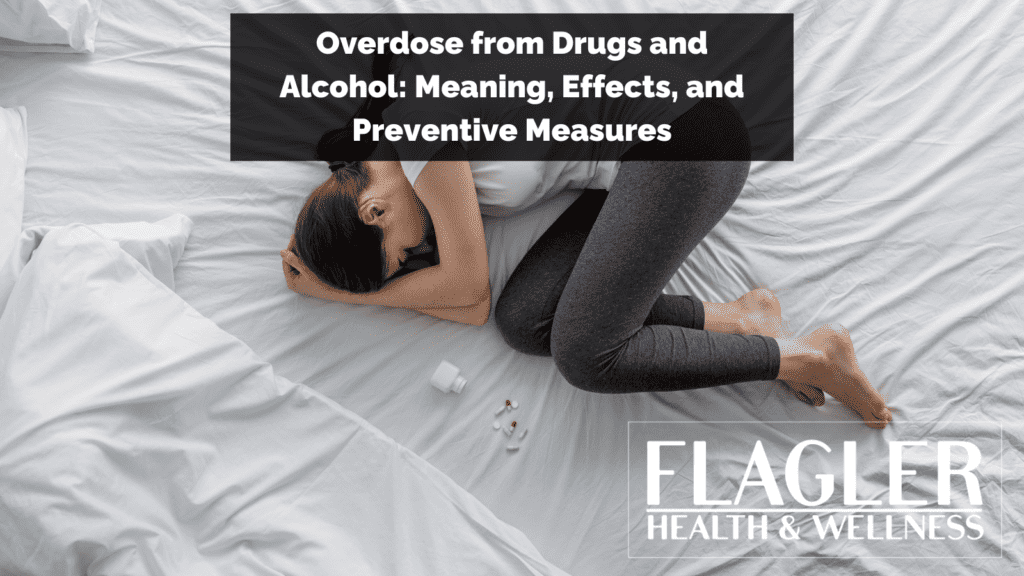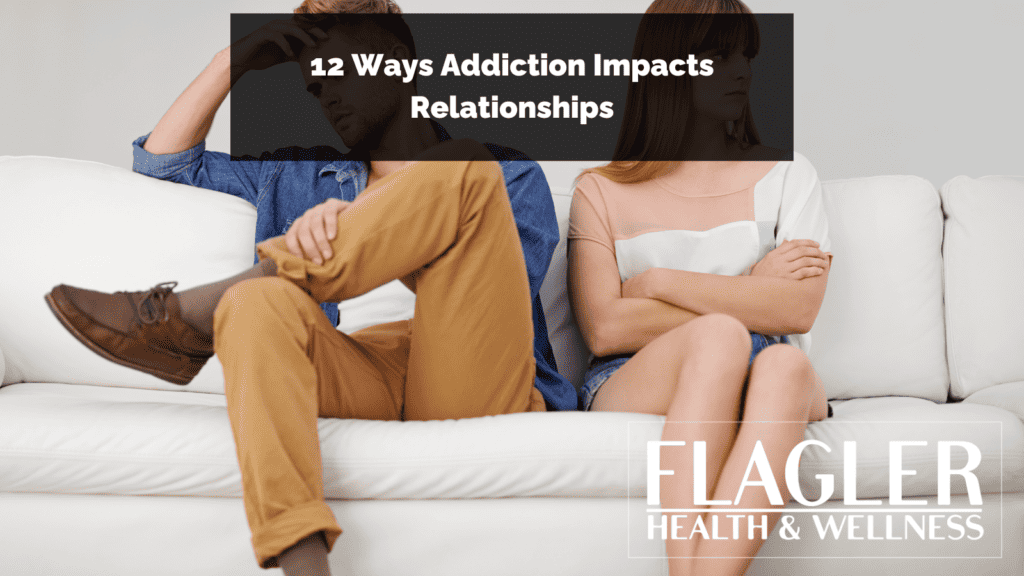Dual diagnosis treatment simultaneously addresses addiction and co-occurring mental health disorders, recognizing the significant impact mental health has on a vast number of individuals. With nearly 1 in 5 adults in the U.S. experiencing mental illness each year, according to the National Alliance on Mental Illness, the intertwined issues of substance abuse and mental health are more prevalent than ever.
What is Dual Diagnosis Treatment?
Dual diagnosis treatment is an integrated approach that addresses both addiction and co-occurring mental health disorders simultaneously. This holistic method recognizes that the two conditions are often interlinked, and effective treatment requires a comprehensive strategy that tackles both issues at the same time.
What is the difference between a dual diagnosis and co-occurring disorder?
The terms “dual diagnosis” and “co-occurring disorder” are often used interchangeably, but there are subtle differences. Dual diagnosis specifically refers to the presence of a substance abuse disorder and a mental health condition, while co-occurring disorders can include any two disorders occurring together, such as two mental health disorders.
What is the Connection Between Addiction and Mental Health?
The connection between addiction and mental health is multi-layered and incredibly significant. It’s important to understand how they relate to each other in order to treat addiction properly. Here are a few perspectives on the relationship between addiction and mental health:
- Self-Medication: People struggling with mental health issues often turn to drugs or alcohol as a way to cope with their symptoms. This can lead to a vicious cycle of drug use.
- Substance-Induced Mental Health Disorders: Prolonged or heavy use of substances can lead to the development or exacerbation of underlying mental health disorders. Alcohol abuse, for example, can lead to depression, while cocaine use can trigger anxiety disorders.
- Shared Risk Factors: Both addiction and mental health disorders often share common risk factors such as genetics, environmental influences, stress, trauma, and early exposure to drugs or alcohol. These overlapping factors can predispose individuals to both addiction and mental health issues.
- Dual Diagnosis Complexity: When addiction and mental health disorders coexist, each condition can mask or mimic the symptoms of the other, making diagnosis and treatment more challenging.
What Are Common Mental Health Issues That People Diagnosed with Addiction Have?
Substance use and mental health issues are deeply intertwined. Substance abuse can exacerbate an underlying mental health issue, while mental health issues can lead people to substance use as a coping mechanism. Some common mental issues that are present in people struggling with substance use may include:
- Depression
- Anxiety Disorders
- Bipolar Disorder
- Post-Traumatic Stress Disorder (PTSD)
- Schizophrenia
- Attention-Deficit/Hyperactivity Disorder (ADHD)
- Obsessive-Compulsive Disorder (OCD)
- Borderline Personality Disorder
What are the Signs Of Dual Diagnosis and Co-Occurring Disorders?
The signs of dual diagnosis and co-occurring disorders tend to overlap, and will vary from person to person, depending on the specific disorders in question. However, some common signs to be aware of include:
- Sudden Changes in Behavior: This can include dramatic shifts in habits, routines, and how a person typically conducts themselves. For example, a previously outgoing individual becoming withdrawn or a generally responsible person neglecting duties.
- Social Isolation: Avoiding social gatherings, losing interest in activities previously enjoyed, or isolating oneself can be indicative of both mental health issues and substance abuse.
- Lack of Personal Hygiene or Self-Care: Neglecting personal grooming, hygiene, and general self-care can be a sign that someone is struggling with mental health and addiction issues.
- Changes in Appetite or Sleep Patterns: Significant weight loss or gain, insomnia, or sleeping too much can all be signs of mental health disorders and substance abuse.
- Continued Substance Use Despite Negative Consequences: Persisting in using substances even when it’s causing health issues, financial problems, or strained relationships.
- Difficulty Managing Daily Tasks and Responsibilities: Struggling to keep up with work, school, or home responsibilities, which can be a result of either mental health issues, substance abuse, or both.
What are the Causes of Dual Diagnosis and Co-Occurring Disorder?
The causes of dual diagnosis are varied and can include genetic predisposition, environmental factors, traumatic experiences, and existing mental health issues.
Treatment Options for Co-Occurring Disorder
Effective treatments for co-occurring disorders must address both the addiction and the mental health disorder using an integrative approach. Talk therapy such as cognitive behavioral therapy, medication assisted treatment, and holistic therapies are all powerful ways to treat people with a co-occuring mental health and substance use disorders. Here’s a closer look at treatment options:
1. Cognitive Behavioral Therapy (CBT)
CBT is a widely-used therapy that helps patients identify and change negative thought patterns and behaviors. It is particularly effective in treating co-occurring disorders.
2. Dialectical Behavior Therapy (DBT)
DBT is a form of therapy that focuses on improving emotional regulation and developing coping strategies. It is especially beneficial for individuals with borderline personality disorder or self-harming behaviors.
3. Medications
Medications can play a critical role in the treatment of dual diagnosis. They can help manage symptoms of mental health disorders and, in some cases, treat substance abuse issues. Medication assisted treatment (MAT) can be a useful tool in the recovery process, one that helps individuals find a state of equilibrium that will allow them to rest and be able to do the therapeutic work necessary to heal.
4. Holistic Therapies
Holistic therapies, such as mindfulness, yoga, and art therapy, can complement traditional treatments by promoting overall well-being and stress reduction.
Benefits of Dual Diagnosis Treatment
The benefits of dual diagnosis treatment are substantial. Some benefits include:
- Improved Overall Health: Dual diagnosis treatment addresses both substance use disorders and mental health issues simultaneously, leading to a comprehensive improvement in overall health.
- Reduced Risk of Relapse: By treating both the addiction and any co-occurring mental health disorders, dual diagnosis treatment significantly lowers the likelihood of relapsing into substance use.
- Better Management of Mental Health Symptoms: This approach provides tools and strategies for effectively managing symptoms of mental health disorders, which often contribute to substance abuse.
- Improved Quality of Life: Dual diagnosis treatment enhances the quality of life by fostering a better understanding of how both disorders interplay, leading to more effective coping strategies and a more stable and fulfilling life.
How to Prevent Dual Diagnosis and Co-Occurring Disorders?
Preventing dual diagnosis and co-occurring disorders involves implementing a range of strategies to provide people with the tools they need before an addiction or mental health issue takes hold. Here are a few to consider:
Early Intervention: Identifying and addressing mental health symptoms early, especially in young people. This would include training educators, healthcare professionals, and community leaders to recognize signs of mental health issues and substance abuse in families and youth.
Increasing Awareness of Substance Abuse: Raising awareness helps break the stigma surrounding mental health issues and addiction, making it easier for individuals to ask for help.
Improving Access to Mental Health Services: Ensuring mental health care is affordable and accessible to all individuals would also help people get the help they need, when they need it. Things can spiral out of control when people don’t have the support they need. These mental health services would ideally be able to identify and treat co-occurring disorders effectively.
Share This Post







